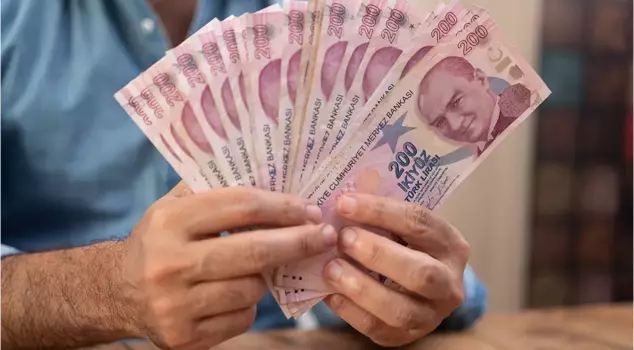
16.04.2025 15:30
The Organization for Economic Cooperation and Development (OECD) Turkey economist Sebastien Turban stated that Turkey could further enhance the improving international investor confidence by maintaining its current economic policies. Turban also mentioned that gross reserves have significantly increased over the past two years.
```html
Turban, one of the authors of the "Turkey Review Report" published by the OECD last week, explained the findings in the report and his forecasts regarding the Turkish economy. Turban stated that following the transformation in macroeconomic policies experienced in Turkey since mid-2023, the current account deficit has decreased, and inflation and inflation expectations have gradually fallen.
"APPLICATIONS ARE CONSISTENT WITH OUR FORECASTS"
Despite inflation still being high, Turban noted that it continues to show a downward trend, stating, "The implementations in monetary and fiscal policies are consistent with our forecasts. The tight stance in fiscal and monetary policies should be maintained until inflation is brought under control. If the government achieves the targets of the Medium-Term Program and maintains this level of budget deficit in the long term, public debt will be sustainable."
Turban pointed out that the Central Bank of the Republic of Turkey and fiscal authorities have made strong commitments to maintain this stance, saying, "When looking at the Central Bank's communication, it is clearly expressed that monetary policy should remain tight until inflation is brought under control and that the interest rate decision will be determined in line with inflation and expectations."
"GROSS RESERVES HAVE INCREASED SIGNIFICANTLY"
Turban mentioned that there could be a risk of early easing in monetary policy, but this is outside of their main expectations, explaining that their main scenario is that the strong commitment to macroeconomic policies will continue. He stated that the transformation in the macroeconomic policy stance has also improved Turkey's external position and that gross reserves have significantly increased over the past two years.
Recalling that there has also been an increase in net reserves excluding swaps and that net reserves turned positive for the first time since early 2020 in 2024, Turban said, "However, (due to recent developments) while the decrease observed so far may be noticeable, this decline is not as high as the accumulation in the last 2 years. In this regard, we still see the increase in reserves as a very positive development."
TURKEY'S POTENTIAL GROWTH IS 4 PERCENT
Turban stated that before the mentioned macroeconomic policies, economic growth in Turkey was "unsustainably high," and that the tight monetary and fiscal policy has helped make this growth more sustainable. He mentioned that they expect the Turkish economy to grow by 3.1% this year, noting that, as in every economy, the tight monetary and fiscal policy puts pressure on inflation and growth, and continued his remarks as follows:
"We see that this slowdown in growth is triggered by macroeconomic policies aimed at bringing inflation back to a sustainable path. Subsequently, as the economy returns to normal, according to our current forecasts, we believe that economic growth will return to its potential of 3.9% in 2026. According to the OECD, Turkey's potential growth is at the level of 4%. Potential growth indicates how much the economy can grow without creating excessive inflationary pressure. According to our current projections, Turkey's growth will return to this potential level in 2026. At these levels, there will be no upward pressure on inflation."
"MAINTAINING A TIGHT ECONOMIC POLICY STANCE IS IMPORTANT FOR BUILDING INVESTOR CONFIDENCE"
Evaluating the international investor perception towards Turkey, Turban stated that the perception of foreign investors has started to improve during the recent period when macroeconomic policies were implemented, and one of the most important pieces of evidence for this is the upgrades by credit rating agencies.
Turban noted that there is a higher level of optimism among international investors, stating, "But there is still a long way to go. It is very important that foreign investments coming to Turkey are not volatile capital flows but rather direct foreign investments that are more permanent in the economy. Therefore, we argue that the policy stance should be maintained. Investor confidence can be further increased over time. From the recent developments, we see the commitment to maintain policies from the communication of the Central Bank and economic authorities and the decisions taken against uncertainties. Thus, confidence in Turkey can increase, and these foreign investment flows can become more permanent."
OECD'S TURKEY REVIEW REPORT
In the Turkey Review Report published last week, the OECD recommended maintaining a tight monetary and fiscal policy, stating that there is a need for strengthening fiscal discipline, increasing spending efficiency, expanding tax revenues, and implementing structural reforms to promote inclusive growth. The report emphasized that Turkey's successful continuation of economic convergence depends on implementing structural reforms, predicting that the Turkish economy will grow by 3.1% this year and by 3.9% in 2026, with inflation expected to be 31.4% at the end of this year and 17.3% in 2026. According to OECD data, the Turkish economy has been one of the fastest-growing economies among OECD countries over the past 10 years, growing at an average annual rate of 4.9%.
```